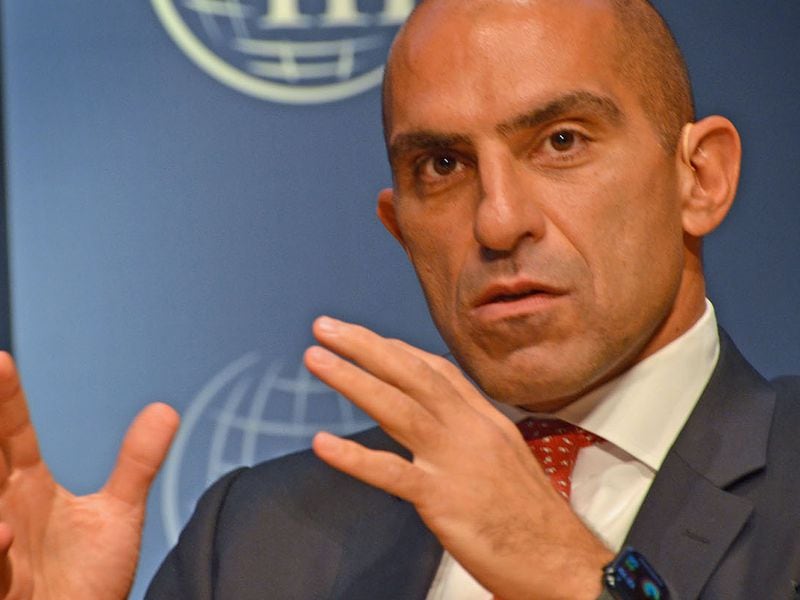Elizabeth Warren: D.C.’s Crypto Critic-in-Chief
/arc-photo-coindesk/arc2-prod/public/LXF2COBSKBCNHNRE3WTK2BZ7GE.png)
U.S. Senator Elizabeth Warren is crypto’s most prominent foe in Washington, D.C.
It’s a role the Massachusetts Democrat has not shied away from; over the years, she’s become a vocal skeptic of the industry’s promises, casting doubt during Senate hearings and introducing bills that would enact tighter guardrails on some aspects of crypto.
Following the collapse of FTX, Silicon Valley Bank and other disasters in the industry, Senator Warren has seemingly become more comfortable with acting as the face of Congress’ criticism of the industry. For their part, crypto’s cheerleaders seem perfectly comfortable painting the lawmaker as an enemy to overcome (or just tweet at).
This profile is part of CoinDesk’s Most Influential 2023. For the full list, click here. Click here to view and bid on the NFT created by Die with most likes. The auction will begin on Monday, Dec. 4, at 12 p.m. ET (17:00 UTC) and ends 24 hours after the first bid is placed. Holders of a Most Influential NFT will receive a Pro Pass ticket to Consensus 2024 in Austin, Texas. To learn more about Consensus, click here.
“Big time financial criminals love crypto,” she said during a February Senate hearing on crypto. “Just last year, just in one year, crypto was the payment method of choice for international drug traffickers, who raked in over a billion dollars through crypto; North Korean hackers, who stole $1.7 billion and funneled that money into their nuclear program; and ransomware attackers, who took in almost $500 million. The crypto market took in $20 billion last year in illicit transactions and that’s only the part we know about.”
When Politico declared she was “building an anti-crypto army,” Warren put that headline onto campaign advertisements on X (formerly Twitter) and Instagram.
And while public statements are one tool in a lawmaker’s armory, interactions with regulators and legislation may have far more immediate and long-reaching impacts. In 2023, Warren wrote letters to crypto companies asking about their banking habits and national security and Treasury Department regulators asking how they’ll track crypto crime
The potentially most impactful bill she’s working on is the Digital Asset Anti-Money Laundering Act, a bipartisan bill with support from heavy hitters in the Senate. While time is fast running out for legislation to become law in the current Congressional session, growing support could signal more movement next year.
Warren has a storied history. Perhaps her most famous regulatory win was her lobbying for what would eventually become the U.S. Consumer Financial Protection Bureau, an independent agency tasked with ensuring financial institutions aren’t defrauding or taking advantage of U.S. persons that was created following the 2008 financial crisis.
The CFPB’s goals would seem to dovetail with some of the crypto industry’s stated goals of providing banking services to un- and underbanked individuals. But, in Warren’s world, the scams and losses outweigh those aspirational promises.
“Some in the crypto industry say that anti-money laundering rules can work so long as they exempt so-called decentralized entities – the crypto exchanges, lenders and other financial intermediaries that run on code,” she said at the February hearing. “… the rules should be simple. The same kind of transactions, same kind of risk, means the same kind of rules.”
Edited by Ben Schiller.









